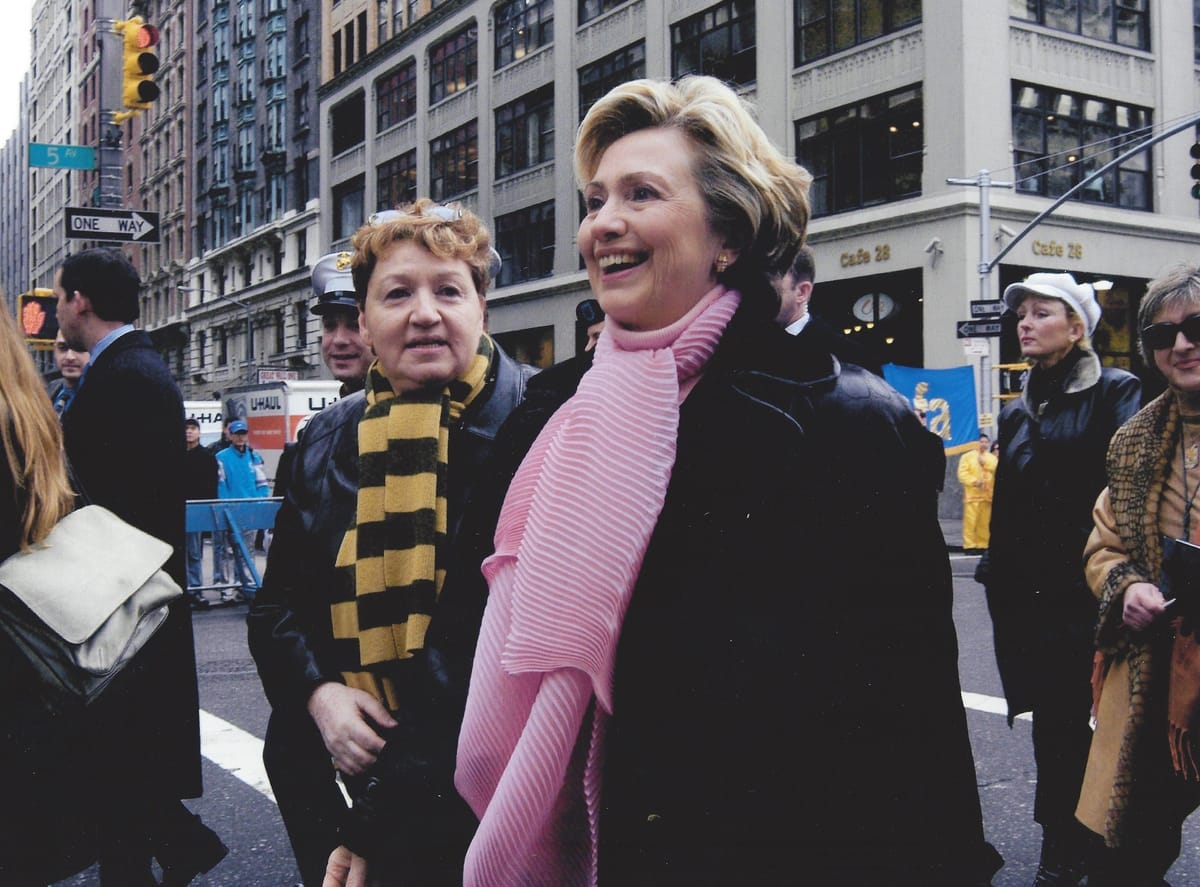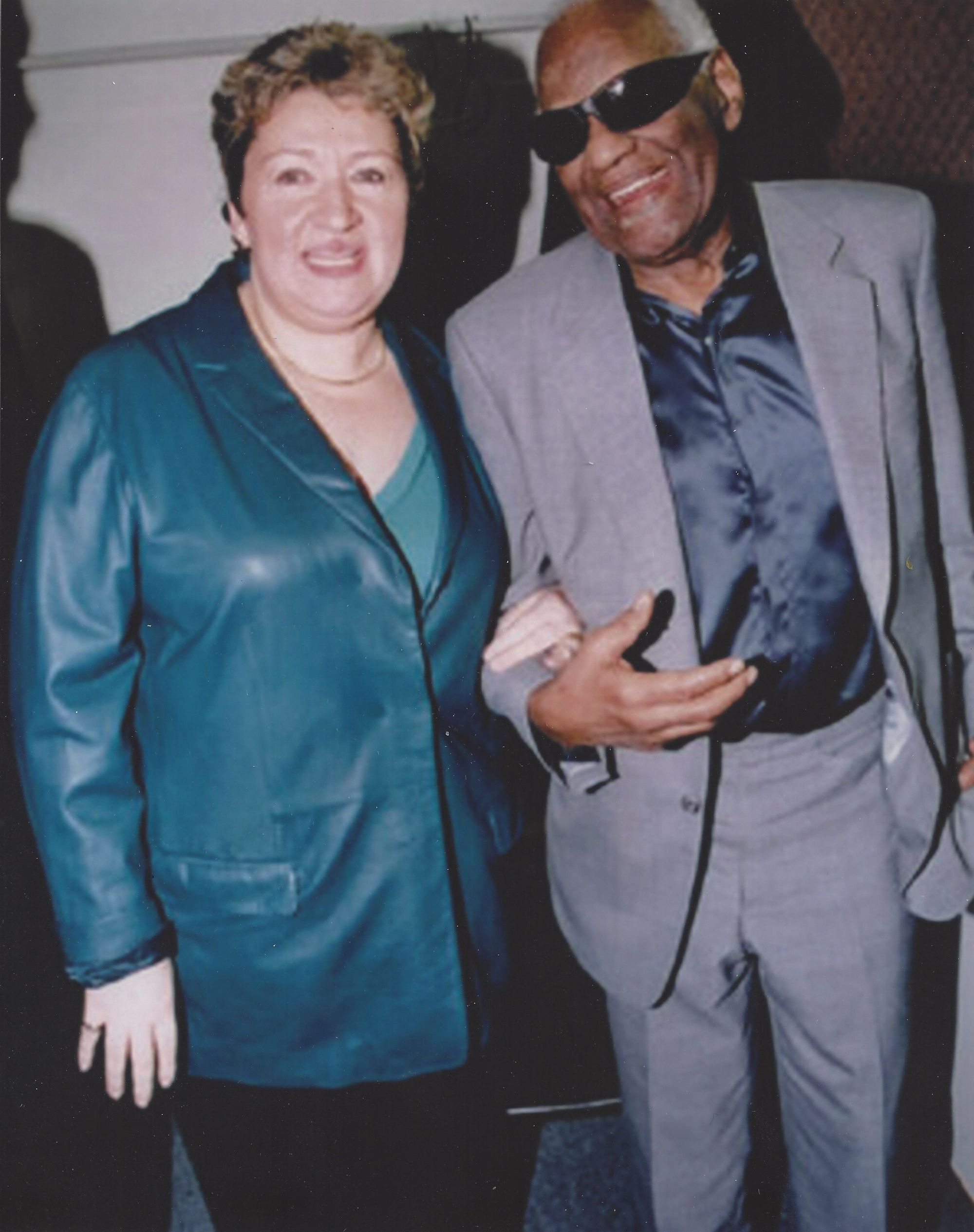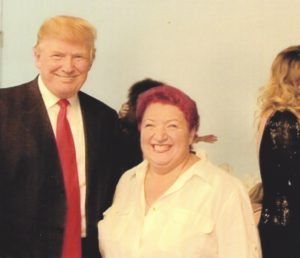Portrait Of Women Strength, Raisa Chernina Keeps Humility And Home At Heart


You might know her from food drives around the holidays or from celebrating grandmothers and police officers with grandiose pageants and parties.
Raisa Chernina came to the United States from Belarus in 1979 with no English skills and zero expectations, and quickly adopted this country as her new home.
“I love America unconditionally,” said Chernina. “It’s a different America than when I came 40 years ago, but this is the best.”
She dedicated her summer weekends to travel and seeing more of this country. Last summer she went to so many places that she can hardly remember each destination.
“I travel a lot; almost everywhere. I went to see South America and Europe. A couple of years ago I decided to introduce myself to America,” said Chernina. “We went to Texas last year, the year before we went to Arizona, and I fell in love. Everything is different; it’s like a different country.”
Texas was quite the experience, according to Chernina. She was shocked to see how different the Lone Star state was compared to her home, the Empire State. She went to a gun show and couldn’t believe what she saw.
“Everybody had a gun,” Chernina explained. “You can buy whatever you want. It is absolutely different, the people, everything.”
This year she is fulfilling a dream of hers by going to Nashville, Tenessee. Chernina is a huge fan of country and gospel music, and can’t wait to see the country music capitol of the world. But, even after seeing a lot of the country and a lot of the world, New York is still her favorite place.
She came to America via the Hebrew Immigrant Aid Society (HIAS), and first went to the small town of Akron Ohio. She lived there for eight years while working for the toy manufacturer, Little Tikes, which she describes as the best company in the world.
“I was working there because I have a masters [degree] in toys — technology,” explained Chernina. “It was like a jump from an airplane without a parachute, I didn’t know anything.”
Akron wasn’t even close to what Chernina expected.
“We stayed in Rome for three months because of immigration. We checked in the book, and it said Akron has a metro. I said ‘it has a metro? It must be a big city,” assumed Chernina. “Then I found out it was a bus that ran once an hour. It’s small [town] but it’s really nice.”
After her time there, she moved to Sheepshead Bay around 1987. She moved from one apartment to another before finally deciding to buy a house just off Emmons Avenue, where she’s stayed every since.
“After that everything completely changed. So many prostitutes, drugs. I bought it 25 years ago. It was terrible,” said Chernina, bluntly. “This is a classic area now. People don’t want it to change, but I love it.”
Change is something Chernina embraces with grace. In her time in Sheepshead, she has seen drastic changes to the neighborhood culture but learned to appreciate every evolvement.
“We have to accept it. There was a big scandal with Cherry Hill two years ago. They don’t want anything to change. I don’t understand why,” said Chernina.
She was referring to long-winded battle to open the Cherry Hill Gourmet grocery store at the site of the historic Lundy’s Brother’s building on Emmons Avenue. The fight for the market ignited bigotry and anti-Russian sentiments among Sheepshead locals, but that didn’t deter Chernina, who simply wanted to grocery shop close to her home.
“From outside you’d never see what’s inside, so why is it different? I live here, and I have to go to Brighton Beach for shopping,” said Chernina. “I don’t like that because of the parking. I’d like to go anytime to buy milk. I don’t want to have to go to Brighton or anywhere else to get groceries.”
Opponents claimed that Russian immigrants don’t have roots in or understanding of the area, but you’d be hard-pressed to find someone who gives more to the community in Sheepshead Bay and Brighton Beach than Chernina.
In 2003, when the U.S. invaded Iraq, Chernina started the Be Proud Foundation. She held a concert at Carnegie Hall with performers from three different countries to unite against terrorism. There were performances from Russians, Americans, and Israelites. After that, Be Proud Foundation snowballed into what it is today.
“So many Russian speaking guys went to the army,” said Chernina, holding back tears. “There was an article in 2004 in the Daily News, I think, about a Russian guy that went to Iraq, and he stepped outside of his car on a bomb and lost his foot. When he was in the hospital in Russian, the flag over the capital was lowered in his honor. He’s from the same town as I am. I was so proud of him.”
In 2005, Chernina fought to get a street named in honor of all those who had already died in the war in Iraq, which nobody wanted to do. They went through city council, and “through hell,” to get the street named, and they did it. It was the first time in history that a street’s name was changed during wartime, according to Chernina.
“We started sending packages to Iraq. We did 22 Russian guys, and 22 guys from anywhere,” said Chernina. “I’ll never forget, I said ‘you can’t send vodka,’ because everything was supposed to be the same. But then, like a mother, you’d see me sneaking a little into the boxes.”
Then she, and the Be Proud Foundation, which is run solely through volunteers, held a ball in which guys danced with their mothers. This inspired Chernina to no end and was the reasoning behind starting the Your Highness Grandmother Pageant, which has gone on annually for the past 15 years.

Her work doesn’t end there. She is also a producer at the Russian-American Broadcasting Company, which has allowed her to meet a-list celebrities like Ray Charles, Johnny Cash, Martha Stewart, Matthew Broderick, and many more. She has even met both of the presidential candidates, and gotten to know them personally enough that she remains undecided in the election.

Her work also extends to honoring law enforcement. She remembers, with gravity, a police officer being there for her when her mother had passed away, a moment of her life that was so traumatic that she can’t recall when exactly it happened.
She celebrated her mother’s birthday that year, like she does every year, and invited policemen and firemen to celebrate with her. After nearly everyone had left, there was one man sticking around. He was a police officer from the 61st Precinct.
“He said, ‘how can I leave you all by yourself? You just lost your mom.’ He sat and listened to me talk about my mom,” remembers Chernina. “When I hold the police appreciation brunch I always tell this story. He was not a police officer, he was a human bring. I told him my car was in the middle of the street. He said you don’t have to worry about anything. I’ll never forget it.”
Her favorite thing about America is diners, which she is sad to say are disappearing in Sheepshead Bay.
“It’s real America. It’s like home, you come in nobody bothers you,” said Chernina. “The waitresses treat you like a friend.”
Despite her widespread recognition for the good work she does, and her career of rubbing elbows with top stars, Chernina stays grounded and humble. She has an air of understanding and an acceptance of all of life’s quirks. All in all, what Chernina appreciates in the world is humanity, and she finds it wherever she looks, and when she finds it she doesn’t hesitate to celebrate it.



